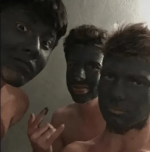Accused cocaine importer walks due to 'racial profiling'
Author of the article:Michele Mandel
Published May 03, 2024 • 3 minute read
Pulling someone over for driving while Black — indefensible. Suspecting someone of being a shoplifter by virtue of their skin colour — unconscionable.
These and many other disturbing examples of racial profiling in our society are rightly condemned.
But when it is used by accused criminals to wiggle out of charges?
A man charged with importing a whopping 23 kilos of cocaine had his charges stayed recently after an Ontario judge found the RCMP officer at Toronto Pearson Airport racially profiled him and violated his Charter rights — even though he had other “reasonable” grounds to suspect him.
“Questioning a traveller at the border cannot be based on race. There is no dispute that anti-Black racism is prevalent in Canada and continues to be a reality in Canadian society. The courts have an obligation to take claims of racial profiling seriously,” wrote Superior Court Justice Nancy Dennison.
“Where race or racial stereotypes are used to any degree to select the suspect, it is racial profiling. It does not matter if police had another justifiable basis to detain the individual.”
Ian Edwards was arrested on Sept. 17, 2018 after returning home from Punta Cana, Dominican Republic, on an Air Transat flight. The Jamaican-born Canadian citizen had declared on his customs form that he was over his liquor limit but after being directed to a border agent, he was told his two bottles were fine.
But the Canada Border Services Agency (CBSA) officer had other concerns about Edwards: he’d booked his ticket just two days before the trip, it was only for four days and he’d travelled three times in the last couple of months to the Dominican Republic, which is considered a drug source country. He was also sweating, mumbling and not responsive to the officer’s questions, she said, including not knowing where he stayed.
So she sent Edwards to secondary inspection on suspicion for narcotics. Another traveller from his flight was sent there as well.
Edwards argued he was only selected by the border agent due to him being a Black man, but the judge disagreed.
Dennison, though, did have issues with the arresting RCMP officer identified only as “Supt. Ryan.”
He’d been told two men who had been sent to secondary inspection had been seen leaving the washroom. “An inspection of the washroom by CBSA officers revealed a broken ceiling tile on the floor and a hole in the ceiling above. A subsequent search in the ceiling revealed several bags containing, what turned out to be, 23.8 kilograms of cocaine,” the ruling said.
During his questioning, Edwards told Ryan a friend had paid for his plane ticket as a favour and he’d gone to visit a girlfriend he’d met on the dating site Plenty of Fish. Like the CBSA agent, the officer was suspicious of the last-minute nature of the trip and its short duration to a drug-source country.
But he added another reason for being suspicious: “In his experience, someone of Jamaican background travels to Jamaica rather than other Caribbean countries. This was also an indicator for him,” Dennison wrote. “He stated it was just another piece of information that stood out as being unusual.”
That’s all it took for the judge to find the RCMP officer had racially profiled Edwards — and despite Ryan’s evidence that the man admitted he’d been in the washroom where the 23 kilos had been found and that he had observed the ceiling dust seen on his shoulder, his arrest for importing coke was now null and void.
“Supt. Ryan relied on a stereotype based on national origin to expose Jamaican-born Canadians to different treatment and scrutiny. There are no independent studies to support his perception that Jamaican Canadians travel to Jamaica and not other Caribbean countries or that they are more likely to return to their country of origin than any other national,” Dennison wrote.
“The fact that Supt. Ryan had reasonable objective grounds to approach and suspect the applicant of importing cocaine is of no moment. Supt. Ryan relied on his perception of persons of certain national origin and race should travel as an ‘indicator’ in suspecting that the applicant imported cocaine.”
And Edwards walked free.
mmandel@postmedia.com

 torontosun.com
torontosun.com
Author of the article:Michele Mandel
Published May 03, 2024 • 3 minute read
Pulling someone over for driving while Black — indefensible. Suspecting someone of being a shoplifter by virtue of their skin colour — unconscionable.
These and many other disturbing examples of racial profiling in our society are rightly condemned.
But when it is used by accused criminals to wiggle out of charges?
A man charged with importing a whopping 23 kilos of cocaine had his charges stayed recently after an Ontario judge found the RCMP officer at Toronto Pearson Airport racially profiled him and violated his Charter rights — even though he had other “reasonable” grounds to suspect him.
“Questioning a traveller at the border cannot be based on race. There is no dispute that anti-Black racism is prevalent in Canada and continues to be a reality in Canadian society. The courts have an obligation to take claims of racial profiling seriously,” wrote Superior Court Justice Nancy Dennison.
“Where race or racial stereotypes are used to any degree to select the suspect, it is racial profiling. It does not matter if police had another justifiable basis to detain the individual.”
Ian Edwards was arrested on Sept. 17, 2018 after returning home from Punta Cana, Dominican Republic, on an Air Transat flight. The Jamaican-born Canadian citizen had declared on his customs form that he was over his liquor limit but after being directed to a border agent, he was told his two bottles were fine.
But the Canada Border Services Agency (CBSA) officer had other concerns about Edwards: he’d booked his ticket just two days before the trip, it was only for four days and he’d travelled three times in the last couple of months to the Dominican Republic, which is considered a drug source country. He was also sweating, mumbling and not responsive to the officer’s questions, she said, including not knowing where he stayed.
So she sent Edwards to secondary inspection on suspicion for narcotics. Another traveller from his flight was sent there as well.
Edwards argued he was only selected by the border agent due to him being a Black man, but the judge disagreed.
Dennison, though, did have issues with the arresting RCMP officer identified only as “Supt. Ryan.”
He’d been told two men who had been sent to secondary inspection had been seen leaving the washroom. “An inspection of the washroom by CBSA officers revealed a broken ceiling tile on the floor and a hole in the ceiling above. A subsequent search in the ceiling revealed several bags containing, what turned out to be, 23.8 kilograms of cocaine,” the ruling said.
During his questioning, Edwards told Ryan a friend had paid for his plane ticket as a favour and he’d gone to visit a girlfriend he’d met on the dating site Plenty of Fish. Like the CBSA agent, the officer was suspicious of the last-minute nature of the trip and its short duration to a drug-source country.
But he added another reason for being suspicious: “In his experience, someone of Jamaican background travels to Jamaica rather than other Caribbean countries. This was also an indicator for him,” Dennison wrote. “He stated it was just another piece of information that stood out as being unusual.”
That’s all it took for the judge to find the RCMP officer had racially profiled Edwards — and despite Ryan’s evidence that the man admitted he’d been in the washroom where the 23 kilos had been found and that he had observed the ceiling dust seen on his shoulder, his arrest for importing coke was now null and void.
“Supt. Ryan relied on a stereotype based on national origin to expose Jamaican-born Canadians to different treatment and scrutiny. There are no independent studies to support his perception that Jamaican Canadians travel to Jamaica and not other Caribbean countries or that they are more likely to return to their country of origin than any other national,” Dennison wrote.
“The fact that Supt. Ryan had reasonable objective grounds to approach and suspect the applicant of importing cocaine is of no moment. Supt. Ryan relied on his perception of persons of certain national origin and race should travel as an ‘indicator’ in suspecting that the applicant imported cocaine.”
And Edwards walked free.
mmandel@postmedia.com

MANDEL: Accused cocaine importer walks due to 'racial profiling'
Judge stays charges after 23 kilos of coke was found in the ceiling of an airport washroom suspect visited.














![yds-e1711571711527[1].jpg yds-e1711571711527[1].jpg](https://forums.canadiancontent.net/data/attachments/20/20476-1c24b6e3b8eada42ef2d436438149e9c.jpg)




